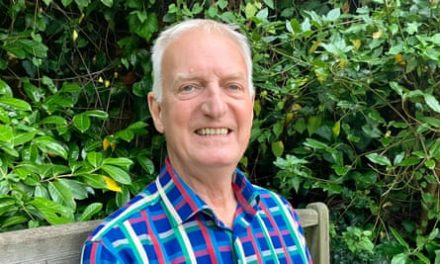Rishi Sunak announces hundreds of new oil and gas licences
Rishi Sunak has confirmed hundreds of new oil and gas licences will be granted in the UK.
The prime minister said new oil and gas drilling licences for the North Sea would help the UK achieve net zero carbon emissions – and that the plan would strengthen the UK’s energy independence and reduce reliance on hostile states, such as Russia.
Sunak, who is visiting Aberdeenshire today, said using domestic oil and gas would be better for the environment than importing it.
Speaking on BBC Radio Scotland’s Good Morning Scotland programme, he said:
Even when we reach net zero in 2050 a quarter of our energy needs will still come from oil and gas, and domestic gas production has about a quarter or a third of the carbon footprint of imported gas.
So not only is it better on our energy security not to rely on foreign dictators for that energy, not only is it good for jobs, particularly Scottish jobs, it is actually better for the environment because there is no point in importing stuff from halfway around the world with two to three times the carbon footprint of the stuff we’ve got at home. That makes absolutely no sense.
This is about is strengthening our energy security for the whole of the United Kingdom.
We’ve seen over the last year the impact of [Vladimir] Putin’s war. We don’t want to be in hock to dictators like that when it comes to our energy, and an important part of guarding against that is investing in our North Sea.
And that’s what today’s announcement is about: making sure that we have future oil and gas licensing rounds.
He said it was “important that we get energy from here at home”, stressing that the sector supports 200,000 jobs.
With the further investment in carbon capture and storage, including the Acorn project, he added: “That’s going to be great for Scottish jobs and help us transition to net zero.”

I will be looking after the politics blog today. If you have any tips or suggestions, please get in touch: nicola.slawson@theguardian.com
Key events
Labour MP Jess Phillips has said the criminal justice system has suffered from “total collapse and calamity” after her party claimed that more than 90% of crimes go unsolved.
The MP for Birmingham Yardley and shadow minister for domestic violence and safeguarding told BBC Radio 4’s Today programme on Monday that criminals have “never had it so good”, adding:
People don’t expect anyone to be caught.
She said there was a shortage of detectives in the country and vowed to recruit more by attracting people from other sectors if Labour wins the next general election.
Phillips added:
The Home Office has watched while charging has dwindled over the years so that 90% of crimes currently go unsolved.
Fossil fuels will continue to play a “major role” in Britain’s energy base for years to come, a Conservative MP has said.
Speaking to BBC Radio 4’s Today programme on Monday after the government announced it would approve 100 new licences for oil and gas production in the North Sea, Andrew Bowie, minister for nuclear and networks, said:
This is about maxing out our oil and gas reserves and that means that we will be much more energy secure and less dependent on hostile actors like Vladimir Putin.
The independent climate change committee understands that fossil fuels will play a major role in our energy base for years to come so we think it’s essential that that fossil fuel comes from British water, ensuring the revenue comes to the British exchequer rather than paying to import, which would have a higher CO2 emission and rely on sometimes hostile foreign powers.
Responding to accusations by campaign group Greenpeace that the government’s funding for a carbon capture project in Aberdeenshire, Scotland, is “greenwashing”, Bowie said:
I don’t recognise that. We are committed to reaching net zero by 2050.
We were the first parliament in the world to legislate for that. Carbon capturing plays a major role in delivering that.
The Association for Renewable Energy and Clean Technology (REA) has criticised the government’s announcement of support for new oil and gas projects in the North Sea.
REA chief executive Nina Skorupska said:
If the government are serious about delivering energy security, while reaching net zero in a pragmatic way, they should be delivering the cheapest forms of generation. This means low-carbon projects that are unaffected by changes in the volatile fossil energy markets, the cause of both increased energy costs and security concerns.
Instead, today, the government are supporting new fossil fuel exploration while support mechanisms like the US Inflation Reduction Act, and the UK Government’s Electricity Generator Levy, a windfall tax on renewables, is seeing the UK attractiveness for low-carbon investment diminish.
Real energy security will be delivered by reinforcing our grid systems and sorting out planning delays so that low-carbon generation can be built quickly.
The development of CCUS (carbon capture, utilisation and storage) should also be targeted at bioenergy applications, not capturing carbon that should stay in the ground. Bioenergy with carbon capture and storage delivers critical negative emissions recognised as essential for getting to net zero.
New oil and gas licences will bolster the UK’s energy independence and economy for generations, Grant Shapps has said.
In a statement, the energy security secretary said:
Safeguarding energy bills for British families and providing a homegrown fuel for our economy that, for domestic gas production, has around one-quarter the carbon footprint of imported liquified natural gas.
Our next steps to develop carbon capture and storage, in Scotland and the Humber, will also help to build a thriving new industry for our North Sea that could support as many as 50,000 jobs, as we deliver on our priority of growing the economy.
The government should have “another look” at the 2030 ban on the sale of petrol and diesel vehicles as the UK risks “simply becoming even more dependent on China”, Sir Iain Duncan Smith has said.
Speaking to Sky News, the former Tory party leader said the 2030 target was “plucked out of nowhere”, adding:
If you want to get them to clean emissions, you’ve got to do it in a way that still keeps our industry going in the UK.
If we rush to this, what we risk right now is simply becoming even more dependent on China. China is ready to literally flood the market here with cheap electric cars, all their battery companies, which, by the way, are many, and they produce far more batteries than the whole of Europe put together … They are going to dump those on us.
There’s also issues around security, our ability to switch those batteries off.
He went on:
So it’s important for us to have another look at that 2030 target because it’s pretty arbitrary and Europe, for example, has moved the target back to 2035, America is back at 2035.
We are rapidly becoming the only developed country in the world that is still clinging to an arbitrary target which we probably won’t make, and which is going to destroy much of our industry.

Peter Walker
Rishi Sunak’s visit to north-east Scotland today will focus on North Sea energy with the intention of drawing a dividing line between the government and Labour’s plan to ban new oil and gas projects.
A Downing Street announcement said the prime minister will meet “key energy industry figures and companies”, and outline policies to ensure energy security.
As well as giving Sunak a relatively rare foray into Scotland, where the Conservatives are seen as vulnerable in the six seats they hold, the visit is also intended as a chance to attack Labour’s plans on energy.
Keir Starmer’s party, which is hopeful of winning back a number of Scottish seats, has pledged to ban drilling for new oil and gas projects in the North Sea, although existing wells would remain operational for decades to come, and make heavy investments in green technologies to create jobs.
Environmental groups and scientists have said an end to new fossil fuel projects is vital to meet net zero goals, but Sunak and his ministers have argued that the ban could leave the UK vulnerable.
The Scottish Greens, the SNP’s partners in government, said that while carbon capture and storage had a role, it “must not be used as a justification for more North Sea drilling, which will have a devastating impact on our environment and take us even closer to climate breakdown”.
Ed Miliband, the shadow climate secretary, said:
Every family and business is paying the price, in higher energy bills, of 13 years of failed Tory energy policy. It is absurd that having left this country so exposed, the Conservative party is asking the public to believe they can fix it.
And it’s telling that while Labour focuses on lower bills and good jobs, Rishi Sunak lurches desperately towards a culture war on climate to appease his split party, losing track of what he believes from day to day, depending on which faction he’s met with.
It’s no way to govern and it’s costing working people.
The SNP Westminster leader, Stephen Flynn, welcomed the UK government’s announcement on funding for the the Acorn carbon capture project in Aberdeenshire.
He told BBC Radio Scotland’s Good Morning Scotland programme:
Whilst I do welcome the fact that we are now in this position, and it is of course excellent news for the north-east of Scotland, I’m very frustrated that it’s taken 18 years to get to this point.
He added:
I think in anything that comes from the UK government the devil will very much be in the detail, but I don’t think anyone can step away from the fact that this is a positive step in the right direction after 18 years of dither and delay.
I guess the key thing now is making sure … that the UK government back up this announcement today with real progress in terms of timing and the evaluation process.
Asked how he was travelling to Scotland this morning, a rather grumpy Rishi Sunak, who ended the interview on BBC Radio Scotland’s Good Morning Scotland programme when it reached the five-minute limit imposed by No 10, replied:
I’ll be flying as I normally would.
He then told the Scottish BBC presenter Martin Geissler:
If you or others think that the answer to climate change is getting people to ban everything that they’re doing, just to stop people going on holiday, I think that’s absolutely the wrong approach.
Every prime minister before me has also used planes to travel around the United Kingdom because it’s an efficient use of time for the person running the country so we can keep focusing on delivery for people.

Peter Walker
Rishi Sunak has claimed that the approval of about 100 new North Sea oil and gas licences will help the UK reach its target of meeting net zero by 2050.
Making a visit to Aberdeenshire on Monday, the prime minister stressed his desire to maintain UK fossil fuel exploration, a key political dividing line with Labour, which has said it will stop any new North Sea drilling if it comes to power.
Before the visit, No 10 unveiled a plan for a new round of licences, as well as plans for two new carbon capture and storage facilities, including the Acorn scheme in north-east Scotland, which missed out when two other sites were chosen for such facilities in 2021.
While environmentalists and many scientists have said new fossil fuel projects are incompatible with net zero targets, Sunak told BBC Radio Scotland’s Good Morning Scotland programme that the licences were integral to the plan.
Insisting he remained committed to the 2050 target, and to the deadline of stopping the sale of new petrol and diesel cars by 2030, Sunak said:
This is a good story for the UK overall. It’s not about political seats, it’s just about doing the right thing for the country.
A parallel announcement on carbon capture and storage schemes results in the Acorn project in north-east Scotland and Viking in the Humber being picked for development by 2030.
Two earlier projects selected in 2021, one in Humber and Teesside, and the other in Liverpool Bay, are expected to come into use by the mid-2020s.
The announcement on new licences, which was handed to the Times overnight before being released generally on Monday morning, said about 100 were expected to be awarded, with the first confirmed in the autumn.
Read the full story here:
Rishi Sunak announces hundreds of new oil and gas licences
Rishi Sunak has confirmed hundreds of new oil and gas licences will be granted in the UK.
The prime minister said new oil and gas drilling licences for the North Sea would help the UK achieve net zero carbon emissions – and that the plan would strengthen the UK’s energy independence and reduce reliance on hostile states, such as Russia.
Sunak, who is visiting Aberdeenshire today, said using domestic oil and gas would be better for the environment than importing it.
Speaking on BBC Radio Scotland’s Good Morning Scotland programme, he said:
Even when we reach net zero in 2050 a quarter of our energy needs will still come from oil and gas, and domestic gas production has about a quarter or a third of the carbon footprint of imported gas.
So not only is it better on our energy security not to rely on foreign dictators for that energy, not only is it good for jobs, particularly Scottish jobs, it is actually better for the environment because there is no point in importing stuff from halfway around the world with two to three times the carbon footprint of the stuff we’ve got at home. That makes absolutely no sense.
This is about is strengthening our energy security for the whole of the United Kingdom.
We’ve seen over the last year the impact of [Vladimir] Putin’s war. We don’t want to be in hock to dictators like that when it comes to our energy, and an important part of guarding against that is investing in our North Sea.
And that’s what today’s announcement is about: making sure that we have future oil and gas licensing rounds.
He said it was “important that we get energy from here at home”, stressing that the sector supports 200,000 jobs.
With the further investment in carbon capture and storage, including the Acorn project, he added: “That’s going to be great for Scottish jobs and help us transition to net zero.”

I will be looking after the politics blog today. If you have any tips or suggestions, please get in touch: nicola.slawson@theguardian.com
Join the exciting world of cryptocurrency trading with ByBit! As a new trader, you can benefit from a $10 bonus and up to $1,000 in rewards when you register using our referral link. With ByBit’s user-friendly platform and advanced trading tools, you can take advantage of cryptocurrency volatility and potentially make significant profits. Don’t miss this opportunity – sign up now and start trading!








Recent Comments